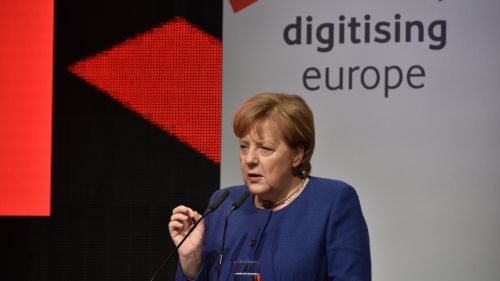Deep Divisions Across the Atlantic

Ivo Daalder discusses the annual Munich Security Conference.
Every February the world’s national security elite descend on Bavaria for the annual Munich Security Conference. Normally cold and snowy, this year the city basked in splendid sunshine and spring-like temperatures. Inside the conference hall, however, the mood was decidedly chillier.
For what became abundantly clear over the course of three days was that the transatlantic relationship, which had always stood at the center of the Munich gathering, is broken. Europeans have all but given up on the Trump administration. And the Trump administration has all but given up on Europe. Both sides have given up even pretending that the relationship is strong.
The perilous state of the relationship was summed up by two speeches—one delivered by German Chancellor Angela Merkel, the other by Vice President Mike Pence—and the very different reactions each received.
Merkel gave a barn-burner of a speech, delivered from hand-written notes, that denounced the Trump administration for what she considered its many ill-conceived policies. On Afghanistan, she reminded Washington that European allies had been there from the beginning, in response to the 9/11 attacks, and they expect to be part of any decision to leave. She deplored the decision to withdraw US forces from Syria, saying it would only strengthen Iran. And she expressed shock at the idea that European car imports into the United States could be seen as a national security threat. Merkel concluded by declaring that “all of us together will be needed,” and then received a long, standing ovation—the first in my ten years of attending the conference.
Pence took to the podium after Merkel and had clearly misjudged his audience. The first half of his speech was devoted to a celebration of all that President Trump and his administration had done to restore American strength and leadership, in language more familiar to a campaign rally at home than a serious address to senior leaders abroad. The second half consisted of a series of admonitions to allies—to spend more on defense, not to buy weapons from adversaries, to end adherence to the Iran nuclear deal, to do more to counter ISIS in Syria, to halt purchases of Chinese technologies, and not to befall to the evils of anti-Semitism. The assembled crowd met the series of demands in stone-faced silence, and Pence left the podium without taking any questions.
The chatter in the corridors after the battle of the speeches was one of deep concern. On the one hand, Merkel’s address was widely seen as a necessary reminder to the United States that allies matter and shouldn’t be taken for granted. Pence’s response underscored the need for sending this message as loud and clear as the chancellor had done.
On the other hand, the discordant notes struck by the two speeches made clear that the divisions across the Atlantic were getting wider and deeper, and no one had any good ideas on how these could be overcome. Many appeared to hope that it would be only a matter of time before America would come to its senses, and former Vice President Joe Biden later retorted from the same podium that “this too will pass. We will be back.”
But that may be faint hope. Not only is it unclear what will happen in the 2020 elections, but whatever happens then is still two years away—years when the transatlantic divisions are bound to deepen still further.
And that is where the real concern comes in. For all her strong rhetoric and passion, Merkel really didn’t have much of an answer for how Germany or Europe could heal the divide or, indeed, address the many problems and issues she identified. On Afghanistan, arms control, trade, China, and other issues, the German leader demanded a voice but was silent on what Germany or Europe would do to resolve any of these challenges.
Indeed, she committed to raising German defense spending to just 1.5 percent of GDP—not the 2 percent target she and other NATO leaders had agreed to. Germany has no troops in Syria, even though it is a direct target of ISIS and has had to deal with the millions of refugees the conflict has created. She noted Iran’s destabilizing behavior in the Middle East but offered no policies for countering it. She promised to insist that Russia continue to send gas through pipelines crossing Ukraine but also insisted that Nord Stream II be built which would allow Moscow to ship gas to Europe and bypass Ukraine.
For all the complaints about the United States and its abdication of global leadership, which is real, neither Merkel nor any of the other European leaders assembled in Munich offered to step up and take on the bigger global role and responsibility that is now needed. And, yet, as Jim Lindsay and I have recently argued, if the rules-based global order is to continue to survive, let alone prosper, those like Germany who have benefitted greatly from that order need to step up. Indeed, if Europe wants America to come back, the best way to start is by taking on more of the global responsibilities and burdens that Americans have carried for so many years

